7 easy-to-grow plants for beginners
Here are the easiest plants to get growing
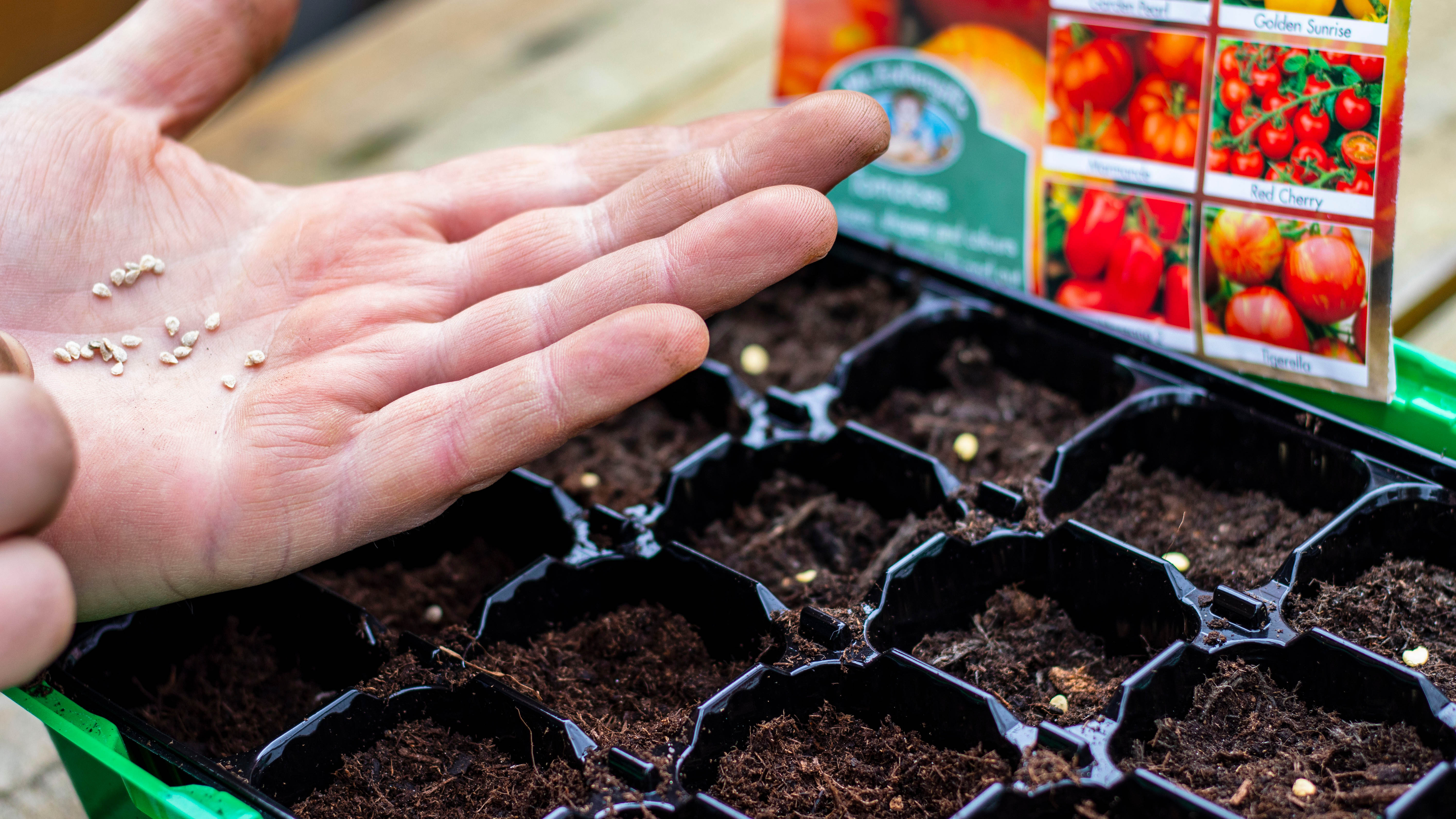
If you’ve always fancied the idea of growing your own plants or food, but didn’t have the time (or a green thumb), you’ll need to know the easy-to-grow plants for beginners.
Be it an empty plot in your backyard, raised beds, or growing vegetables in pots, gardening shouldn’t have to be complicated. Luckily, there are certain flowers or veggies that are easy-to-grow and fairly low-maintenance — especially for novice gardeners.
What’s more, growing plants is a great way to add vibrant color to your yard, and have tasty homegrown foods. Not only are these organic and free from chemicals, but can also save you money on your grocery bills in the long-run.
So, if you want to get stuck into simple planting for a beautiful backyard, here are seven of the easiest plants to grow for beginners.
1. Cherry tomatoes
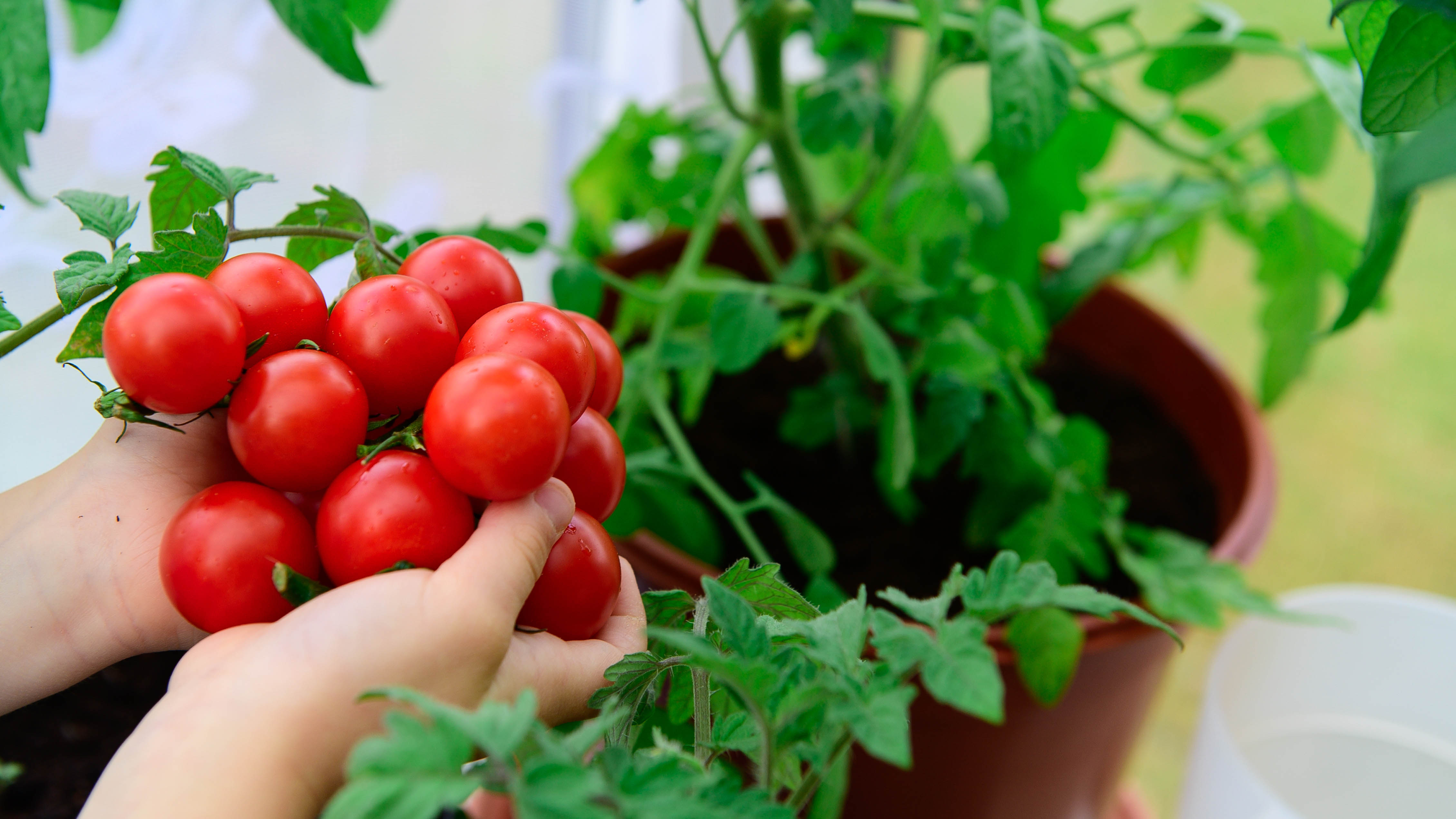
If you love the taste of fresh tomatoes, cherry tomatoes are a popular, homegrown choice, and can grow in abundance. You can easily learn how to grow tomatoes from seeds, or how to grow tomatoes in pots in a few simple steps. Experts recommend starting all plant seeds in a plastic tray, before transplanting them to well-drained soil once they've reached 12 inches in height. Then place in a sunny location, or even on a windowsill.
Depending on the variety, tomatoes usually take 25 to 60 days to form fruits after flowering. Then you can simply pick from the plant straight onto your plate! Popular cherry tomatoes to plant are Sun Gold, Edox, and Sungreen.
For more top tips, find out how often should you water tomato plants and when should you do it? Plus, here's 7 ways to get more fruit from a tomato plant.
Sign up to get the BEST of Tom's Guide direct to your inbox.
Get instant access to breaking news, the hottest reviews, great deals and helpful tips.
2. Lettuce
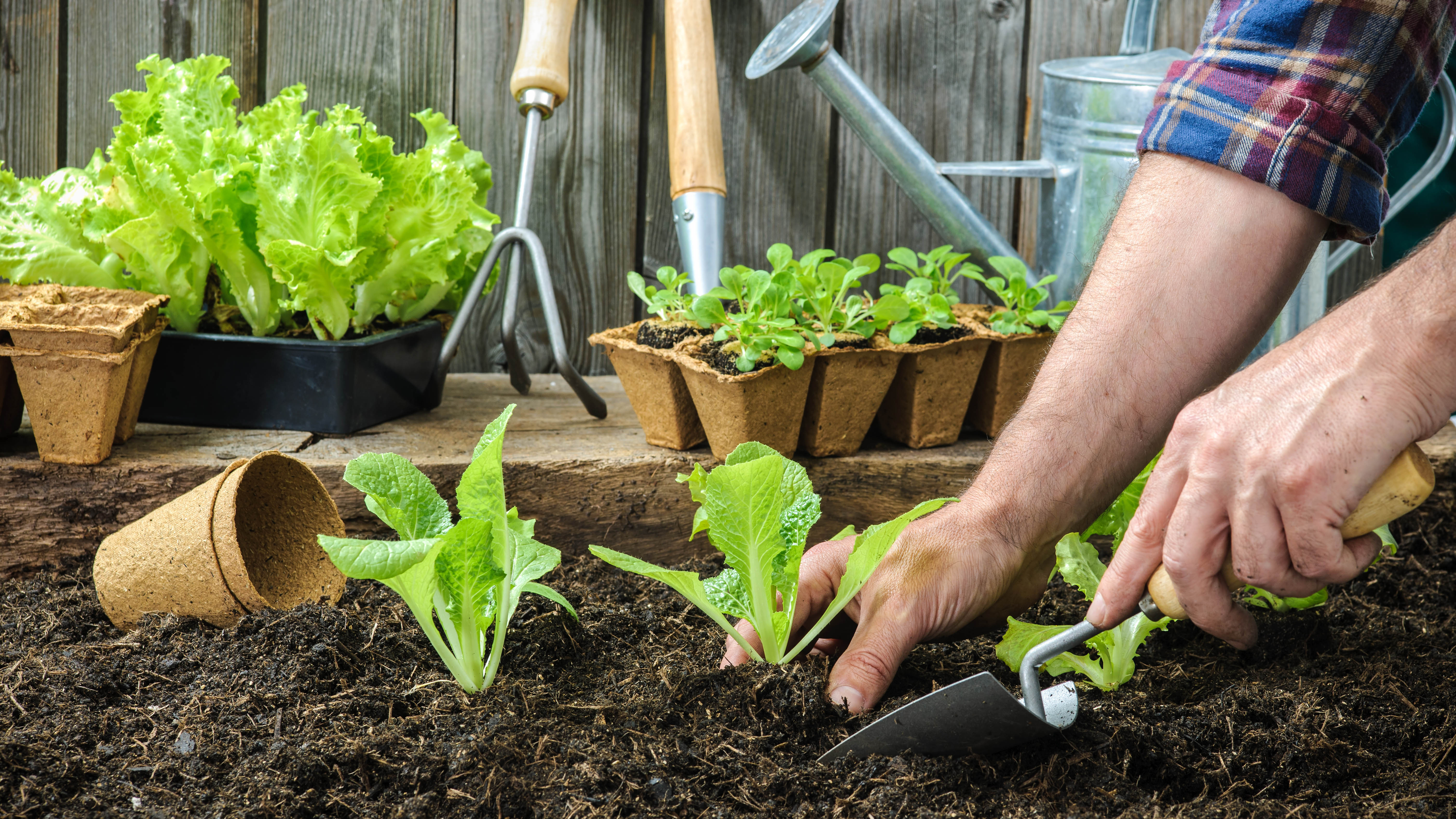
Another quick-growing food are popular leaf lettuce varieties — with certain types taking at least 30 days to harvest. In fact, experts suggest the loose-leaf, baby-leaf, and mini-head lettuces are the easiest to grow for beginners.
Start by planting lettuce seeds directly into your containers or plastic seed trays. When seeding lettuce, make sure you space the seeds two inches apart with rows twelve to eighteen inches apart. Avoid sowing the seeds too deep into the soil, as they need light to germinate. Then, cover with a thin layer of fresh compost and water well.
The best part is, you don’t have to wait for lettuce leaves to fully mature, as you can pick off leaves as they grow. Ideally, you'll want to plant some seeds every two weeks to guarantee a constant supply of fresh lettuce all through the summer. You can either keep it in a large container, or transplant your lettuce outdoors, if you need more space. Bear in mind, these fast-growing varieties tend to be milder than full-size head lettuce; however, they'll still make refreshing salads.
3. Kale
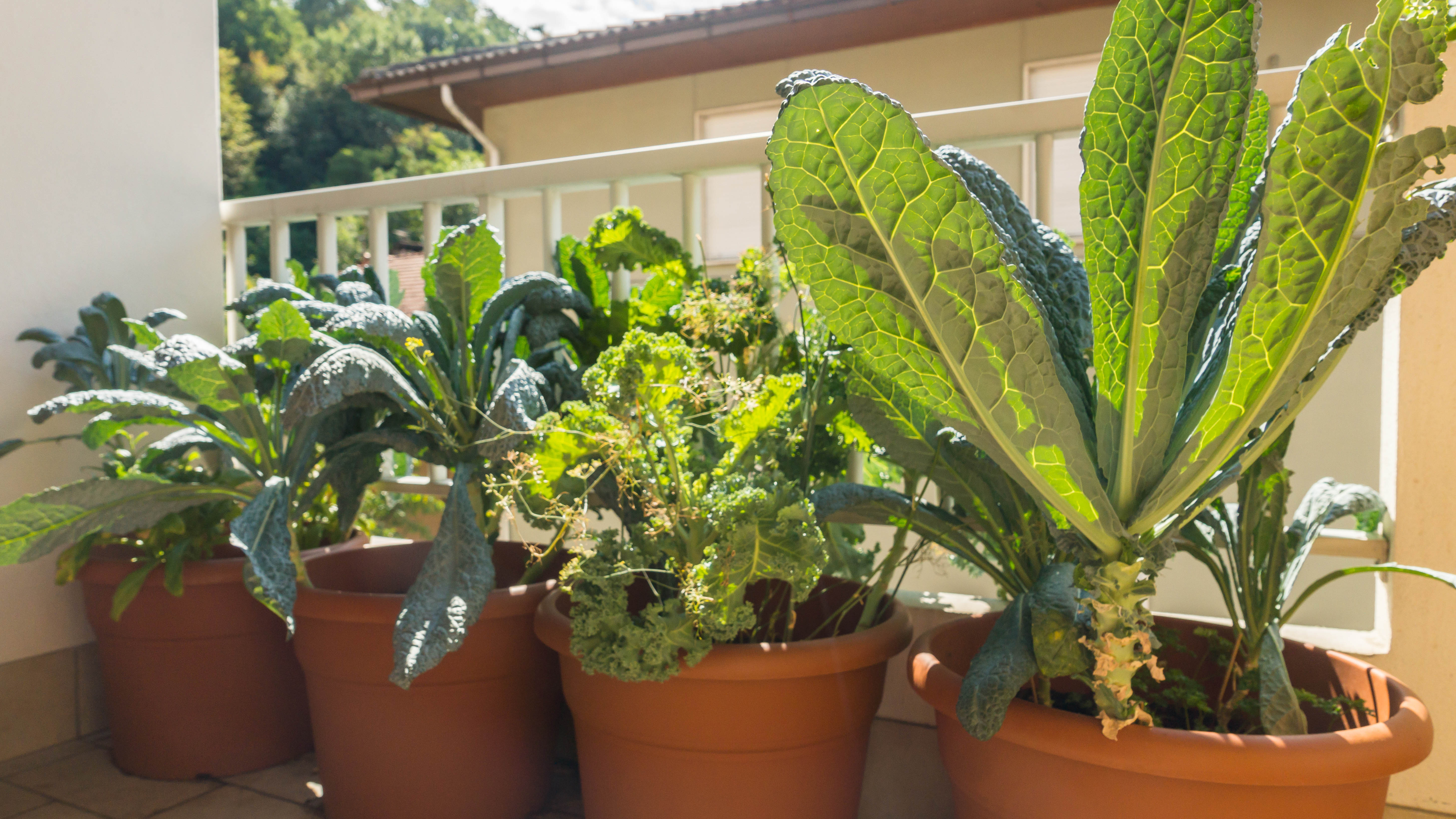
These leafy greens, widely-known for their nutritious properties, are often used in smoothies, salads, pasta dishes and more. And if you want a fresh supply of kale, it’s one of the easiest veggies to grow in containers.
Depending on how many plants, choose a 12 x 12 inch container with plenty of drainage holes, to stop the roots from becoming soggy. Fill with a rich, organic soil with an ideal pH level of 6.0-7.0, and sow kale seeds 1-2 inches apart, and 4-5 seeds per plant.Typically, kale can grow from seed to harvest in about eight weeks, thriving in well-lit areas.
In addition, kale is best sown from late spring to early summer, and can be grown alongside other lettuce, herbs, or salads.
4. Sunflowers
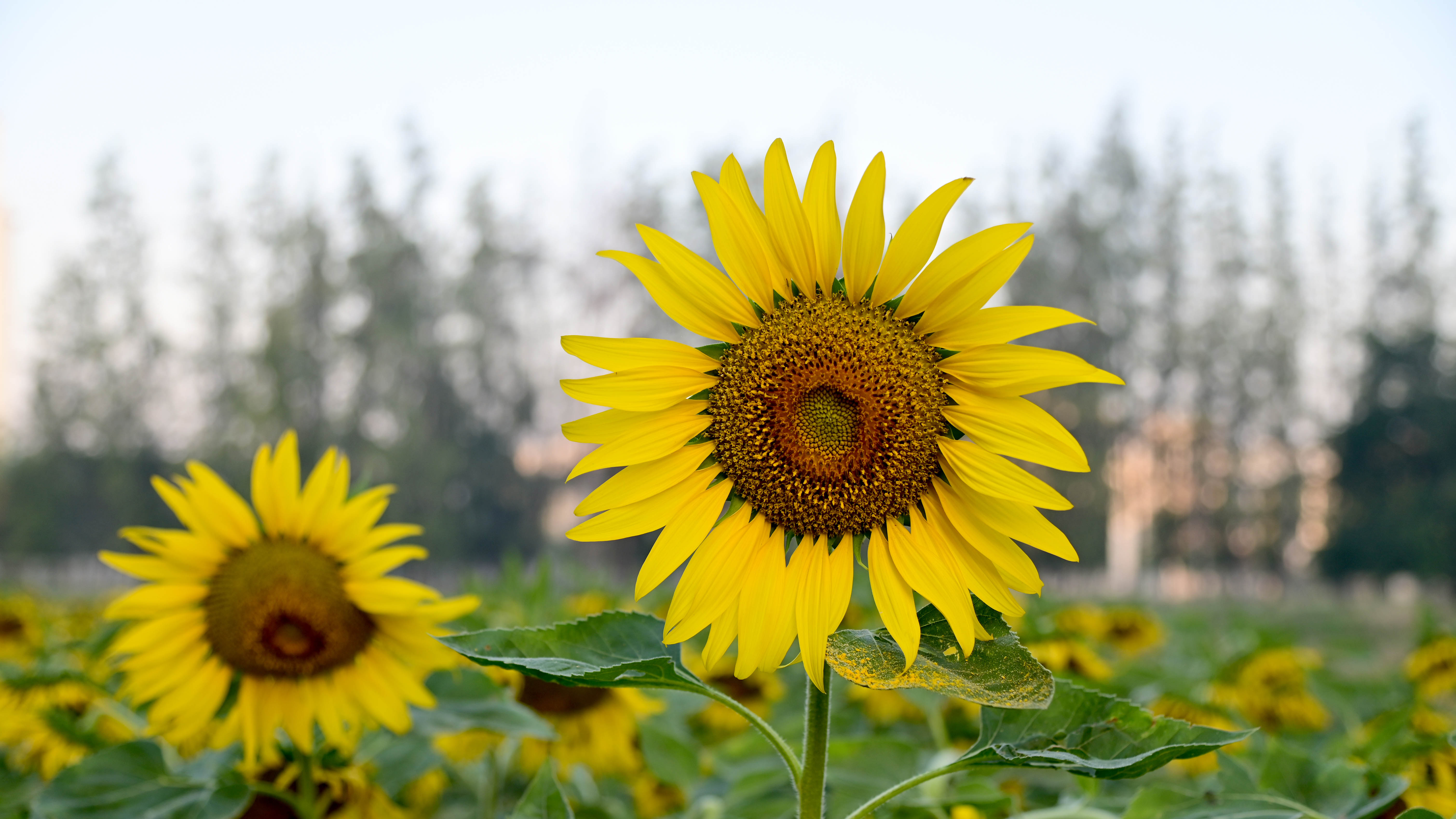
Native to North America, sunflowers are known for their bright and warm yellow flowers. What’s more, these vibrant plants are easy to grow, particularly the dwarf varieties which do well in pots.
In fact, these grow between 12 to 42 inches in height, so ensure you choose the right size of pot. Then, add a layer of pebbles, stones or other drainage materials at the base of the pot, before filling with a good quality compost soil. Next, directly sow seeds 4-5 inches apart and ½ inch deep into pots, before placing in a sunny spot.
Generally, it takes around 8-10 days to germinate, and once seedlings are a few inches tall, you can transplant them to larger pots. Ensure you support the stems of taller sunflowers, in case they bend or break on those breezy days.
The best part is, sunflowers thrive in full heat and sun, and are heat-resistant, making them the perfect choice for those summer months. For more top tips, check out how to plant sunflower seeds.
5. Marigolds
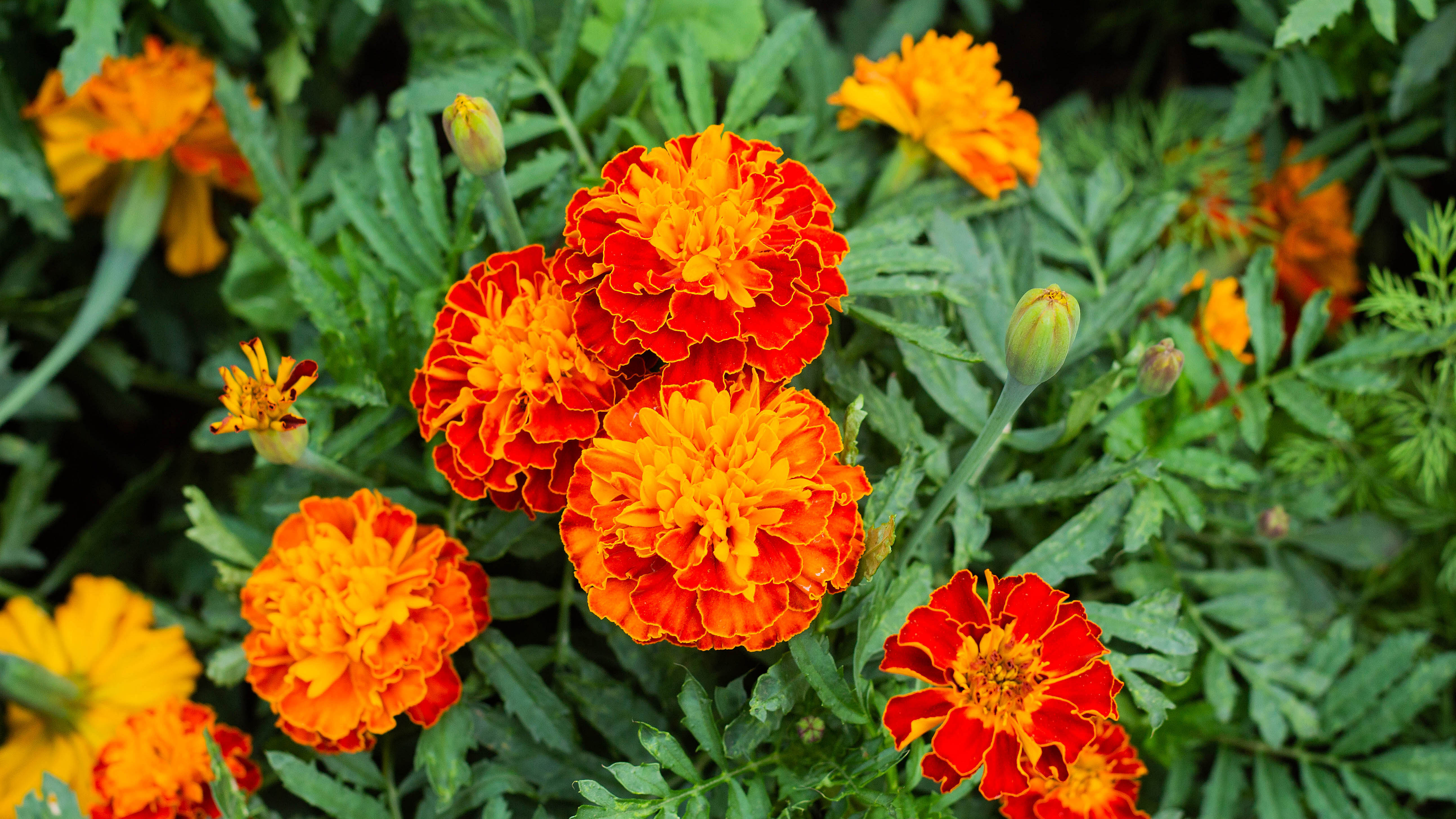
Depending on variety, these popular flowers are easy to grow in containers, with the most common types ranging in shades of yellow, orange, and red. The key thing when choosing a container is drainage — so pick ones with holes at the bottom, and at least 10 inches deep/wide.
Like most plants, you can start by sowing directly into plastic trays, before transplanting them into containers. These grow well in fertile, all-purpose potting soil, and seeds usually take a couple of weeks to germinate. Similar to sunflowers, marigolds grow best in full sunlight, so place them in a sunny spot, to help them thrive. Besides frequent watering, and deadheading, marigolds are pretty low-maintenance.
6. Cosmos
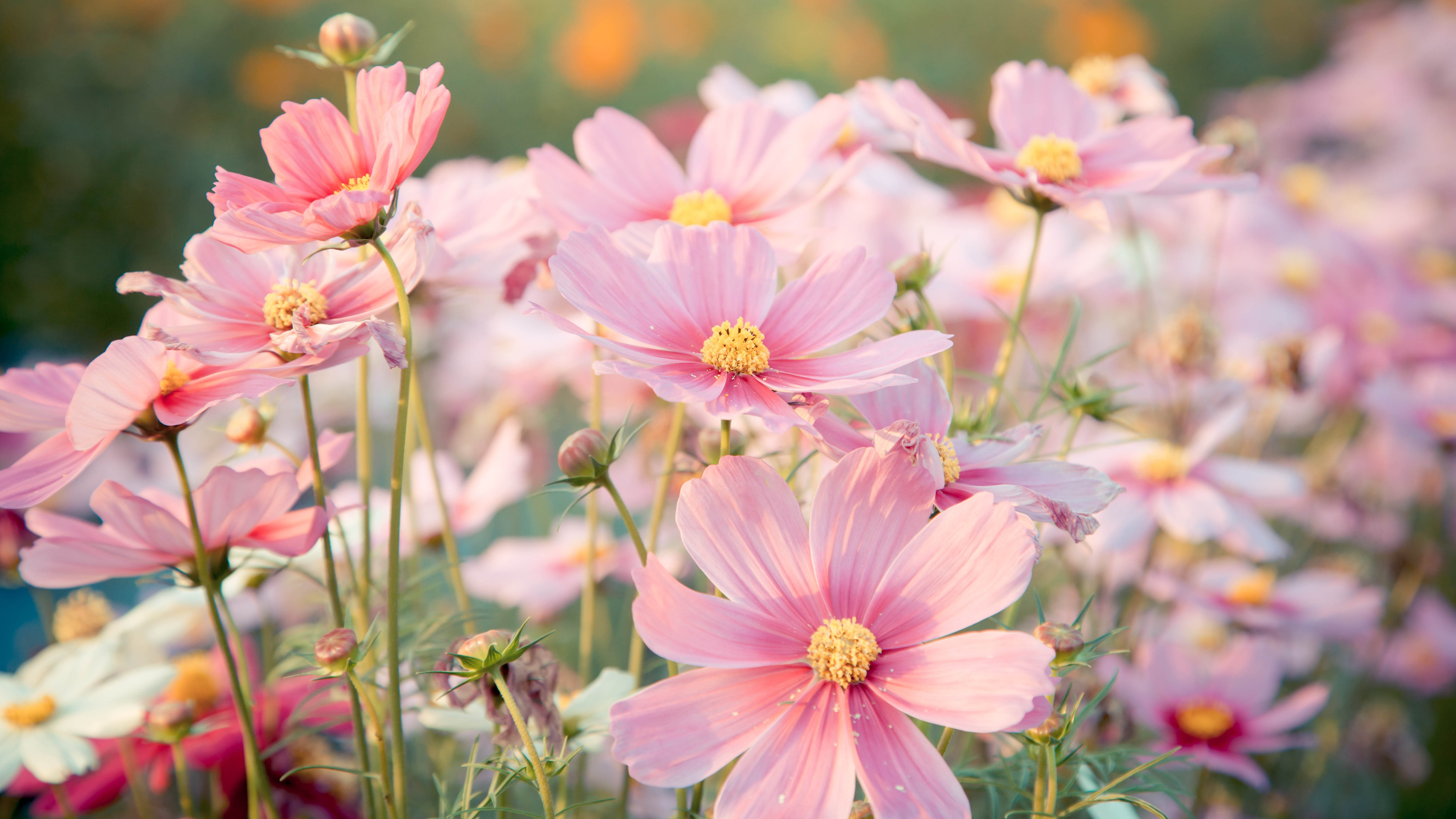
Originally from Mexico, these pretty flowers can grow as tall as 6 feet (2 m.) high, so it's best to opt for dwarf or compact cultivars for containers.
Generally, cosmos is one of the easiest flowers to grow, with the ideal time to plant being June or July in full sunlight. It’s advisable to water them regularly, but avoid over-watering as this can produce fewer flowers.
What’s more, these plants are quite hardy, and low-maintenance, with some species reappearing every year (perennial). Bear in mind that they need protection from the breeze, so try to plant them against a fence, or facing away from direct winds.
7. Fuchsia
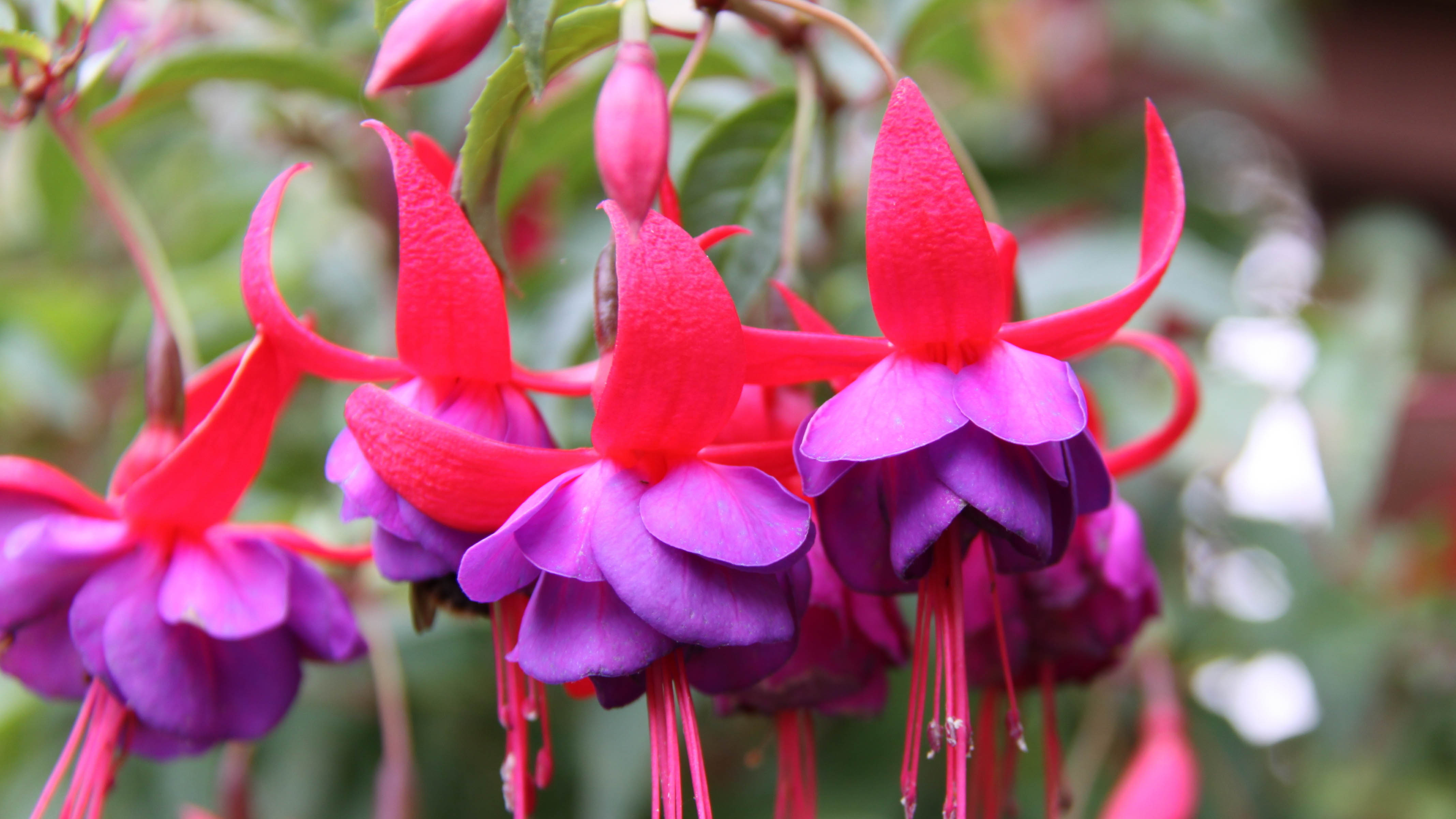
These vibrant, purple and pink flowers are another plant that grows extremely well in pots. In fact, for best results, it’s ideal to plant hardy fuchsias in early summer. Sow in a quality, multi-compost soil, and place in a sunny or partly-shaded spot. Typically, germination can take from 14 up to 120 days, but the average time is 30 days.
Once you’ve planted in containers, water regularly to aid growth. And when established, they would only need the occasional watering, and deadheading during the summer. Best of all, they will add a pop of color to your backyard!
More from Tom's Guide

As the Homes Content Editor, Cynthia Lawrence covers all things homes, interior decorating, and garden-related. She has a wealth of editorial experience testing the latest, ‘must-have’ home appliances, writing buying guides and the handy ‘how to’ features.
Her work has been published in various titles including, T3, Top Ten Reviews, Ideal Home, Real Homes, Livingetc. and House Beautiful, amongst many.
With a rather unhealthy obsession for all things homes and interiors, she also has an interior design blog for style inspiration and savvy storage solutions (get rid of that clutter!). When she’s not testing cool products, she’ll be searching online for more decor ideas to spruce up her family home or looking for a great bargain!
